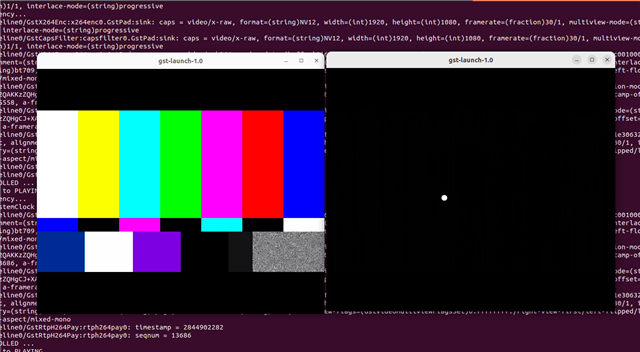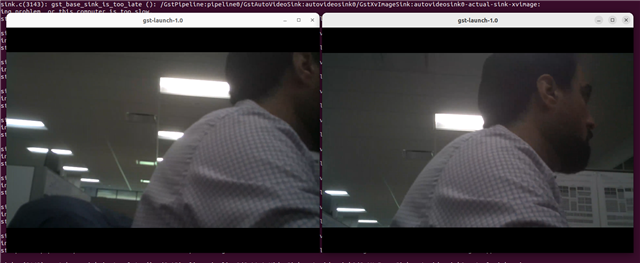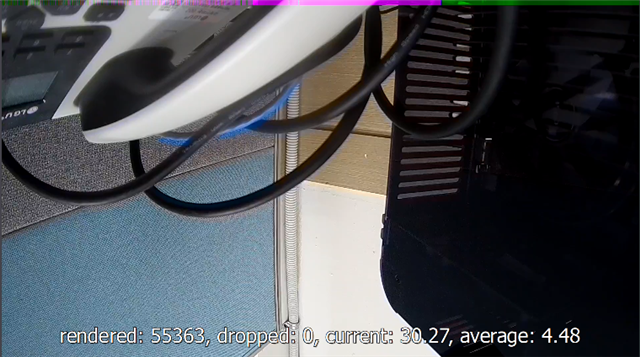Other Parts Discussed in Thread: AM67A
Tool/software:
Hi TI team,
I'm currently working with the AM62A platform and using SDK version 10.05.
My setup involves receiving two separate H.264 RTP streams on different UDP ports (5000 and 6000). Each stream is decoded using v4l2h264dec, then re-encoded with v4l2h264enc, and transmitted again over the network via UDP using udpsink.
However, I'm observing that when both pipelines are running simultaneously, the decoder (v4l2h264dec) consistently hangs or stops processing after a few seconds. If I run only one pipeline, it works fine, but running two in parallel causes the issue.
Here are the exact GStreamer commands I'm using:
# Stream 1
gst-launch-1.0 -v \
udpsrc port=5000 caps="application/x-rtp, media=video, clockrate=90000, encoding-name=H264, payload=96" ! \
rtph264depay ! h264parse ! v4l2h264dec capture-io-mode=4 ! \
queue ! v4l2h264enc output-io-mode=5 extra-controls="controls,h264_i_frame_period=60,video_gop_size=60" ! \
h264parse config-interval=1 ! rtph264pay pt=96 ! \
udpsink host=192.168.123.180 port=7000 &
# Stream 2
gst-launch-1.0 -v \
udpsrc port=6000 caps="application/x-rtp, media=video, clockrate=90000, encoding-name=H264, payload=96" ! \
rtph264depay ! h264parse ! v4l2h264dec capture-io-mode=4 ! \
queue ! v4l2h264enc output-io-mode=5 extra-controls="controls,h264_i_frame_period=60,video_gop_size=60" ! \
h264parse config-interval=1 ! rtph264pay pt=96 ! \
udpsink host=192.168.123.180 port=8000 &
Both pipelines are completely separate and use different ports. The encoder appears to function normally — the issue always occurs at the decoder side. The resolution of both streams is 1920x1080 @ 30fps.
According to the AM62A datasheet, up to 4x H.264 decodes + 4x encodes @ 1080p30 should be supported, so this behavior is unexpected.
Questions:
-
Is there any known issue with dual H.264 decoding in SDK 10.05?
-
Are there any patches or configuration changes required to enable multiple decoder instances to run concurrently?
-
Could this be a limitation in the VPU firmware or V4L2 driver layer?
Any guidance or suggestions would be highly appreciated.
Best regards,
Yeoncheon Yi





